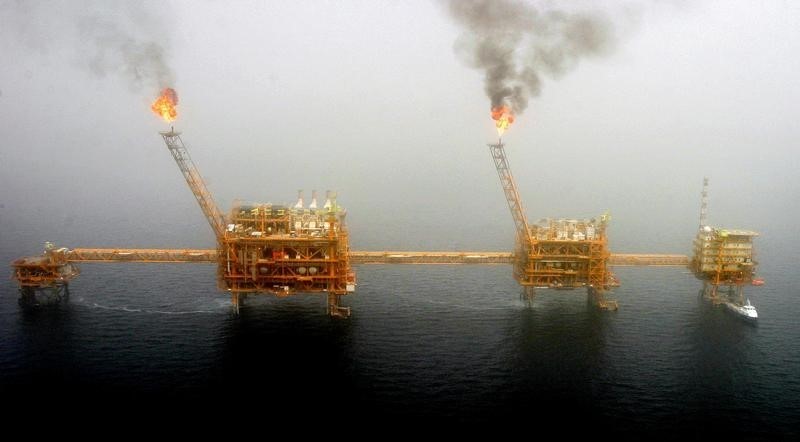DUBAI (Reuters) - Iran's officials are reviving the idea of developing oil fields using buy-back deals that international oil companies dislike, suggesting renewed tensions between hardliners and reformists over the future of the industry.
Iran needs money to boost output from its oil reserves, the world's fourth largest, because production has been crippled by years of Western sanctions. Some of these were removed in January.
Iran has promised new Iran Petroleum Contracts (IPCs), offering more flexible terms and ending a system known as buy-back contracts that foreign companies say give them a limited return on investment while denying them any rights to the oil, with the Iranian government taking the bulk of the profits.
But on Monday, the newly-appointed managing director of state-run National Iranian Oil Company, Ali Kardor, said oil fields could be developed either through buy-backs or Engineering, Procurement, Construction and Financing Contracts (EPCF).
Joint fields will be offered using the new type of contracts, while Iranian companies will be entrusted with developing a number of fields, Kardor said, according to Shana, the Iran's oil ministry agency.
Foreign oil companies and Iranian reformists are likely to regard Kardor's comments as a setback.
Buy-back contracts, used for more than 20 years, pay foreign companies a fee for extracting oil but bar them from claiming any rights to the reserves or taking equity stakes in Iranian companies.
Oil majors such as Italy's Eni (MI:ENI) and France's Total (PA:TOTF) have said they lost so much money on the old buy-back deals that they would not go back to Iran under old terms under any circumstances.
But hardline rivals of reformist President Hassan Rouhani have opposed the new contracts, and internal infighting over the structure and commercial terms of the new IPC contracts has caused several delays in tendering them.
Iran's Supreme Leader Ayatollah Ali Khamenei said on Saturday that no new contracts would be awarded without necessary reforms in the national interest.
"I'm a little puzzled and it seems to be because of the election. They do not want Rouhani to succeed," said an Iranian oil source, referring to Iran's 2017 presidential election.
Iran Oil Minister Bijan Zanganeh appointed Kardor last month in a push to agree long-awaited deals with oil majors.
He said a final draft for the contracts would be approved by the government shortly after some amendments to appease both critics and foreign companies.

But in a sign that hardliners are gaining ground, Zanganeh also said last week the contracts were amended to enable Iran to develop its oil and gas fields either through a buy-back system or other methods.